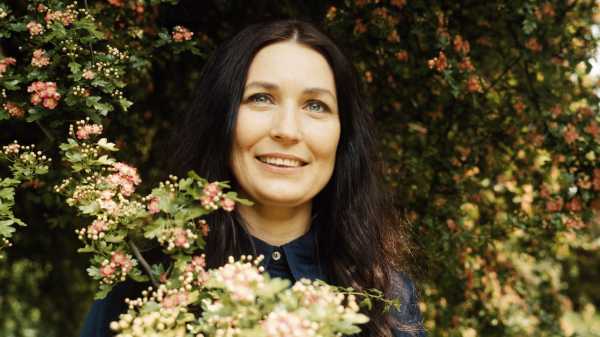
In 1975, Loretta Lynn, by then an established country singer-songwriter
for more than a decade, released her single “The Pill.” At that point,
Lynn had won hearts and raised eyebrows with songs like “Don’t Come Home
A-Drinkin’ (with Lovin’ on Your Mind),” whose themes are self-evident,
and “Fist City,” warning a woman to stay away from her husband. (“You’d
better move your feet / if you don’t want to eat / a meal that’s called
Fist City.”) “I was the first one to write it like the women lived it,”
she has said.
“The Pill,” which she didn’t write but performed with gusto, is a wife’s
celebration of freedom: “I’m tearin’ down your brooder house, ’cause now
I’ve got the pill.” The song—like several of Lynn’s singles—was banned.
In “Cocaine & Rhinestones,” an
opinionated, feverish, wildly entertaining podcast about
twentieth-century American country music, written and hosted by Tyler
Mahan Coe, we learn why, from a progressive guy with an arsenal of
doggedly presented research.
Coe, thirty-three, grew up in country music; his father is the
outlaw-country artist David Allan Coe. In childhood, Tyler
travelled with his dad’s band; in young adulthood, he played rhythm
guitar in it. He now lives in Nashville. When I asked him how he turned
out so centered after a peripatetic upbringing among outlaw-country
musicians, he paused and said, “Well, I’ve done a lot of acid.” Also,
books: as a kid on the road, he’d disappear into stuff like James
Clavell’s “Shōgun”;
he’s still an obsessive reader, often of the kinds of books that have
never been digitized and may never be. “Cocaine & Rhinestones”
references a thorough bibliography. For “The Pill,” this includes Lynn’s
memoir, “Coal Miner’s Daughter,”
and the collection “Feminists Who Changed America, 1963-1975.”
(Coe, who is currently working on the second season of the show, was
recently invited to use the archives in the Country Music Hall of Fame,
where, he wrote in an e-mail, there “are at least 500 unwritten books in
that data and probably closer to 1,000. . . . Half or more of those books
will not be written.”)
The podcast has a distinctive, essayistic sound, narrated entirely by
Coe and delivered in a tone somewhere between that of a news anchor,
Jonathan Goldstein on “Heavyweight,”
and a prosecutor delivering a closing argument. I often laugh while
listening, admiring his zeal. In the “Pill” episode, Coe begins by
talking about the “Streisand effect,” in which an attempt to stop the
public from being exposed to something makes it go viral, and goes on to
discuss the Comstock laws, on obscenity; the history of contraception in
the U.S.; a bit of Lynn’s biography, and the lyrics and authorship of
the song—all to set up why “The Pill” was banned. “I’m about to prove it
wasn’t a knee-jerk reaction to a country song about birth control,” he
says. He proceeds forensically, playing clips of songs by men about
birth control and abortion. “Pretty gross,” he says of a callous Harry
Chapin lyric. “But it was not banned.” None of the men’s songs were.
There’s a double standard in country music, he explains: “Men have to go
way over the line. All women have to do is get near it.” He plays
samples of banned songs by women, including Jeannie C. Riley’s hit
“Harper Valley P.T.A.,” about a mother telling off a bunch of small-town
hypocrites. (Mind-blowingly, Coe gives that song a three-episode deep
dive later in the season.) By the end of the episode, he’s proved his
point, case closed: “Female artists have their songs banned simply for
standing up to society, or for fighting back.”
A primary thrill of listening to “Cocaine & Rhinestones,” for me, a
classic-country fan of modest insight—I love Hank Williams, Sr., Johnny
Cash, Loretta Lynn, and Patsy Cline; I’ve watched a few bio-pics; as a
kid, I was fascinated by “Hee-Haw”—is the education it provides about
other, less familiar artists, whose music is immediately, viscerally
appealing. (Plenty of music lovers know all about the Louvin Brothers and Doug and Rusty Kershaw;
I did not.) Another is that it provides cultural context; each story
reflects larger themes about the artistry and business of country music.
And Coe’s writing—like a good country song—is provocatively zesty.
“Those bastards” deregulated radio in the Telecommunications Act of
1996; Buck Owens’s vocal delivery is “stabbed-in-the-back-sincere”; a
racist song about the horrors of school desegregation “ends with a
chorus of, I assume, ghost children, singing ‘My Country ’Tis of Thee.’ ”
In one of my favorite episodes, about Bobbie Gentry’s eternally
mysterious “Ode to Billie Joe,” from 1967, Coe says,
“You can tell it isn’t going to be a normal song right away, from those
wheezing violins on the intro.” The arranger “was working with an
unusual crew of four violins and two cellos.” One of the cellists
plucked his notes, “while the rest of the strings weave in and out in
response to the unfolding drama.” The end is “cinematic”: the strings go
up, “with the narrator going up on Choctaw Ridge to pick flowers,” and
down, “when the narrator throws the flowers down off the bridge.” We
hear them, falling and eerie, and they give us chills. In the past, I’d
tried to resolve my intense feelings about “Ode to Billie Joe,” a staple
on my childhood oldies station, by trying to figure out what the
narrator and Billie Joe were throwing off the Tallahatchie Bridge; by
reading about Gentry; and even by watching the horrible 1976 movie made
to capitalize on the song’s success. None of that was remotely
satisfying, but listening to the “Cocaine & Rhinestones” episode is: Coe
both celebrates the song’s mystery and provides insight into its strange
power.
I asked Coe about his style; he doesn’t sound like many other podcast
hosts. “I would describe it as ‘performative,’ ” he said. He was
influenced by “the Radio”—dramatic radio shows from his
childhood—“specifically Paul Harvey, ‘The Rest of the Story’ ”—which, when I
heard it in the eighties, felt like it had been beamed there from the
forties—“and Art Bell, the guy who does ‘Coast to Coast AM,’ which has gotten
super political and weird now, but when I was a kid it was on AM radio
overnight, which meant clear airwaves; you could pick it up in most of
the country.” Bell had a “weird voice,” Coe said, and listeners would
call in to talk to him things like about ghosts, alien abductions, and
telepathy. “We had a driver who loved listening to it,” he said. “You’d
be driving through the night to the next town, through the middle of
nowhere, just the headlights on the road ahead of you in the complete
darkness, and all these adults are on the radio having these
conversations about this stuff, and they sound dead serious.” That mood
made an impact. On “Cocaine & Rhinestones,” he wants to evoke a sense of
it. He records his vocals overnight, in a basement, when it’s quiet
outside. “Just me alone in the dark, talking into a microphone,” he
said.
Sourse: newyorker.com






